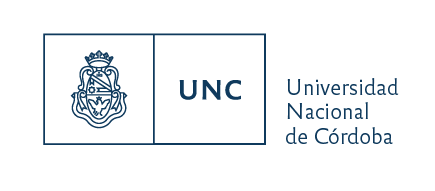| dc.contributor.author | López Steinmetz, Lorena Cecilia | |
| dc.contributor.author | Fong, Shao Bing | |
| dc.contributor.author | Leyes, Candela Abigail | |
| dc.contributor.author | Dutto Florio, María Agustina | |
| dc.contributor.author | Godoy, Juan Carlos | |
| dc.date.accessioned | 2021-08-10T14:03:29Z | |
| dc.date.available | 2021-08-10T14:03:29Z | |
| dc.date.issued | 2020-09-10 | |
| dc.identifier.citation | López Steinmetz LC, Fong SB, Leyes CA, Dutto Florio MA and Godoy JC (2020) General Mental Health State Indicators in Argentinean Women During Quarantine of up to 80-Day Duration for COVID-19 Pandemic. Front. Glob. Womens Health 1:580652. doi: 10.3389/fgwh.2020.580652 | es |
| dc.identifier.issn | 2673-5059 | |
| dc.identifier.uri | http://hdl.handle.net/11086/19379 | |
| dc.identifier.uri | https://www.frontiersin.org/articles/10.3389/fgwh.2020.580652/full | |
| dc.description.abstract | Introduction: Argentinean quarantine during the COVID-19 pandemic is one of the most long-lasting worldwide. We focused on the first 80-days of this quarantine on Argentinean women. Our aims were to analyze differences in general mental health state (MHS) indicators, by the (1) sites of residence with different prevalence of COVID-19 cases, and (2) quarantine duration; (3) to assess multiple relationships between each general MHS indicator and potentially affecting factors.
Methods: We used a cross-sectional design with convenience successive sampling (N = 5,013). The online survey included a socio-demographic questionnaire (elaborated ad hoc) with standardized and validated self-reported questionnaires (General Health Questionnaire, Kessler Psychological Distress Scale) measuring the MHS indicators: self-perceived health, psychological discomfort, social functioning and coping, and psychological distress.
Results: Worse self-perceived health and higher psychological discomfort affected significantly more women residing in sites with high prevalence of COVID-19 cases, compared to those residing in sites with intermediate prevalence, but effect sizes were small. Mean scores of all general MHS indicators were significantly worse for longer quarantine sub-periods (up to 53, 68, and 80-day duration) than for shorter sub-periods (up to seven, 13, and 25-day duration). Being a younger age, having mental disorder history, and longer quarantine durations were associated to worsening MHS, while the lack of previous suicide attempt has a protective effect.
Discussion: Our findings show that a worse MHS during quarantine may not be attributed to the objective risk of contagion (measured greater or less), and under quarantine, women MHS—as indicated by group central tendency measures—got worse as time went by. This strongly suggests that special attention needs to be paid to younger women and to women with history of mental disorder. Along with physical health, mental health must be a priority for the Government during and after quarantine and the COVID-19 pandemic. | es |
| dc.language.iso | eng | es |
| dc.rights | Attribution-NonCommercial-NoDerivatives 4.0 Internacional | * |
| dc.rights.uri | http://creativecommons.org/licenses/by-nc-nd/4.0/ | * |
| dc.subject | Covid 19 | es |
| dc.subject | SARS-CoV-2 | es |
| dc.subject | Women's mental health | es |
| dc.subject | Psychological distress | es |
| dc.subject | Coping | es |
| dc.subject | Social functioning | es |
| dc.subject | Self-perceived health | es |
| dc.subject | Quarantine | es |
| dc.title | General mental health state indicators in Argentinean women during quarantine of up to 80-day duration for COVID-19 pandemic | es |
| dc.type | article | es |
| dc.description.version | publishedVersion | es |
| dc.description.fil | Fil: López Steinmetz, Lorena Cecilia. Universidad Nacional de Córdoba. Facultad de Psicología; Argentina. | es |
| dc.description.fil | Fil: López Steinmetz, Lorena Cecilia. Consejo Nacional de Investigaciones Científicas y Técnicas. Instituto de Investigaciones Psicológicas; Argentina. | es |
| dc.description.fil | Fil: López Steinmetz, Lorena Cecilia. Universidad Empresarial Siglo XXI; Argentina. | es |
| dc.description.fil | Fil: Fong, Shao Bing. University of Melbourne; Australia. | es |
| dc.description.fil | Fil: Leyes, Candela Abigail. Universidad Empresarial Siglo XXI; Argentina. | es |
| dc.description.fil | Fil: Dutto Florio, María Agustina. Universidad Empresarial Siglo XXI; Argentina. | es |
| dc.description.fil | Fil: Godoy, Juan Carlos. Universidad Nacional de Córdoba. Facultad de Psicología; Argentina. | es |
| dc.description.fil | Fil: Godoy, Juan Carlos. Consejo Nacional de Investigaciones Científicas y Técnicas. Instituto de Investigaciones Psicológicas; Argentina. | es |
| dc.journal.city | Lausanne | es |
| dc.journal.country | Switzerland | es |
| dc.journal.editorial | Frontiers Media S.A. | es |
| dc.journal.pagination | 1-15 | es |
| dc.journal.title | Frontiers in Global Women's Health | es |
| dc.journal.volume | 1 | es |





